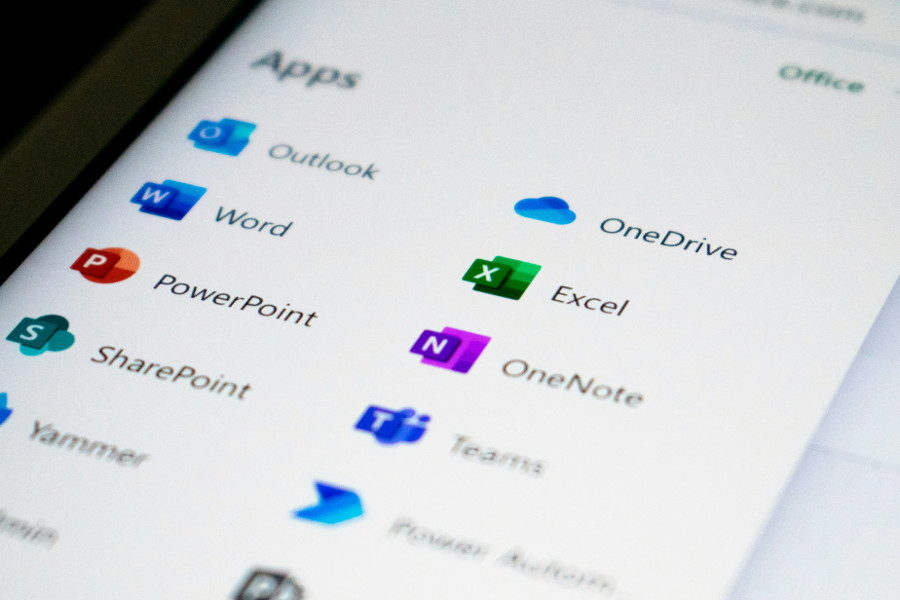Must-Have Software Skills to Boost Your Career in Any Industry
In today’s fast-moving digital age, mastering the right software tools is a crucial part of achieving success in your career. We all know that navigating the modern workplace requires more than just doing your job well - it’s about being efficient, adaptable, and able to work seamlessly with others. Whether you're deep into a tech career, handling finance, designing marketing strategies, or creating content, learning the software that supports your industry is key to staying competitive and advancing your professional journey. So, how can the right software skills shape your career path, and which tools are essential to master?

1. Productivity and Communication Tools
It’s no secret that today’s work environment demands constant communication and a high level of organization. Whether you're at a desk in a corporate office, working remotely, or collaborating with a team across different time zones, the tools you use can make or break your efficiency.
Most people are familiar with Microsoft Office Suite, which is often seen as the backbone of any office-based career. Word for documents, Excel for data crunching, and PowerPoint for presentations are the essentials you simply can’t ignore. Excel, in particular, is a powerhouse tool. Beyond basic spreadsheet functions, Excel offers advanced features like pivot tables, VLOOKUP, and macros, all of which are invaluable for handling large amounts of data and drawing meaningful insights from it.
For those working in dynamic, collaborative teams or remote setups, Google Workspace (formerly G Suite) has become a staple. Tools like Docs, Sheets, and Slides enable easy collaboration and cloud-based storage, making them essential for creating documents, managing projects, and working together in real-time. But that’s not all. Platforms like Slack and Microsoft Teams offer intuitive communication tools, perfect for staying connected with your team and sharing files and ideas quickly.
2. Data Analysis and Visualization
We live in an age where data drives decisions. Whether you're analyzing sales trends, customer behavior, or operational efficiency, understanding how to work with data has become a critical skill in nearly every profession. Fortunately, there’s a wide range of software available that helps you analyze and visualize complex datasets with ease.
Microsoft Excel is still the go-to tool for data management, and for good reason. With its powerful functions, Excel lets you perform complex calculations, analyze data with pivot tables, and visualize it through charts. These are skills that professionals in finance, marketing, and other fields cannot afford to overlook.
For those who want to take their data skills further, Tableau and Power BI are excellent tools for creating interactive, visual dashboards. These platforms allow you to transform raw data into easy-to-understand charts and graphs, making it easier to present your findings to stakeholders. If you’re aiming for a career in data science or analytics, understanding how to use these tools will make you stand out from the crowd.
On a more advanced level, SQL (Structured Query Language) is indispensable for querying databases. Knowing how to extract relevant data efficiently can set you apart in fields like data analytics and business intelligence. And if you’re diving deeper into the world of data science, languages like Python and R offer powerful capabilities for statistical analysis and machine learning, helping you unlock even more insights from your data.
3. Project Management Software
We’ve all worked on projects that needed to be completed on time and under budget, but the difference between a project that runs smoothly and one that faces constant delays often boils down to effective management. Project management software is one of the best tools for keeping everything on track, and there’s no shortage of options available depending on the scale and nature of the project.
Trello and Asana are perfect for small to medium-sized teams that need a simple, visual way to manage tasks. These tools allow you to assign tasks, track progress, and communicate with your team all in one place. They’re both user-friendly, so even people with limited project management experience can pick them up quickly.
However, if you’re in a tech or Agile environment, Jira is the tool you need. Jira is designed specifically for software development teams and allows you to plan, track, and manage sprints, bugs, and features. Whether you’re in charge of a large tech rollout or managing an ongoing product release, mastering Jira can help keep your projects organized.
For large-scale projects that require detailed scheduling and resource management, Microsoft Project is a must. This tool gives project managers the ability to develop Gantt charts, allocate resources, and keep an eye on every aspect of a complex project.

4. Design and Creative Software
When it comes to creativity, the tools you use can often make or break your vision. For those working in design, media, or content creation, the ability to produce high-quality visual and video materials is essential. Adobe Creative Suite is the industry standard for creative professionals. If you're in graphic design, Photoshop is indispensable for image editing, while Illustrator is a must for creating vector art and logos. For print or layout design, InDesign offers powerful tools for working with multi-page documents.
But it’s not just about static images. Premiere Pro is the go-to software for video editing, and After Effects is the industry leader for animation and motion graphics. For those working in film, advertising, or digital media, knowing how to use these programs is a game-changer.
If you’re new to design or need a simpler solution, Canva offers a more accessible option for creating graphics, social media posts, and presentations. With its drag-and-drop interface, it’s perfect for quick design tasks or for those who don’t have advanced graphic design skills.
For those working in UI/UX design, mastering tools like Figma and Sketch is crucial. These platforms allow you to design user interfaces and create prototypes, which are essential in today’s world of web and mobile development. These tools help designers craft seamless, intuitive user experiences that keep customers coming back.
5. Development and Programming Software
In today’s tech-driven world, being proficient in programming and development tools is a major advantage. Whether you’re a web developer, a software engineer, or a system administrator, the right software can help you write, test, and deploy your code faster and more efficiently.
Git and GitHub are essential for version control, allowing developers to track changes to code and collaborate with other team members. Learning these tools is a must for any software development role, as they make managing complex projects far easier.
Visual Studio Code is a lightweight, versatile code editor that works for multiple programming languages. Developers love it for its speed and the variety of extensions it supports. But depending on your area of expertise, you might also need specialized IDEs (Integrated Development Environments), like IntelliJ IDEA for Java or PyCharm for Python.
For those diving into the world of DevOps, tools like Docker and Kubernetes are incredibly valuable. Docker is used to containerize applications, making them easier to deploy and manage across various environments. Kubernetes is used for orchestrating containers at scale, making it essential for large organizations that rely on complex cloud environments.
6. CRM and Marketing Tools
For professionals working in sales, marketing, or customer service, knowledge of Customer Relationship Management (CRM) software is essential. Salesforce is the leading platform in this space, helping businesses track customer interactions, manage leads, and streamline sales processes. If you’re looking to work in sales or marketing, knowing how to use Salesforce can give you a significant edge.
For smaller businesses, HubSpot is a great alternative to Salesforce. It’s an intuitive, user-friendly CRM platform that also includes marketing automation and sales tools. It’s perfect for those working in smaller companies or startups.
When it comes to digital marketing, Google Analytics is the cornerstone for tracking website performance. Understanding how to interpret traffic data, user behavior, and conversion metrics is crucial for improving your online presence.
If you’re involved in SEO, tools like SEMrush and Ahrefs can help you optimize your content and improve search engine rankings. These platforms provide in-depth insights into keywords, backlinks, and competitors, which are invaluable for marketers looking to drive traffic and increase visibility.

7. Accounting and Finance Software
If you’re working in accounting or finance, knowing how to use accounting software is a must. QuickBooks is widely used by small to medium-sized businesses to handle everything from bookkeeping to payroll and tax filings. Xero is another great option for small businesses, offering similar features with a more modern interface.
For larger companies, more robust software solutions like SAP and Oracle Financials are commonly used to manage financial data at scale. These tools are essential for managing complex financial operations across large organizations.
8. Cybersecurity Tools
In a world where cyber threats are constantly evolving, understanding the basics of cybersecurity is a valuable skill. Wireshark is a network protocol analyzer that helps IT professionals detect and troubleshoot security issues. Kali Linux is a powerful operating system used for penetration testing, allowing security professionals to identify vulnerabilities in systems and networks.
For those looking to manage security operations at scale, Splunk is a top choice. It helps organizations analyze large volumes of machine data in real-time, providing insights that can help prevent security breaches before they occur.
Conclusion
No matter your industry, the software tools you use can make all the difference in your career trajectory. From project management to creative design, data analysis to software development, mastering the most relevant software in your field will not only help you perform your job more efficiently, but it will also open doors to new opportunities and career advancements. Embracing these tools and continuing to expand your skill set will ensure you remain competitive in an ever-evolving digital landscape.



